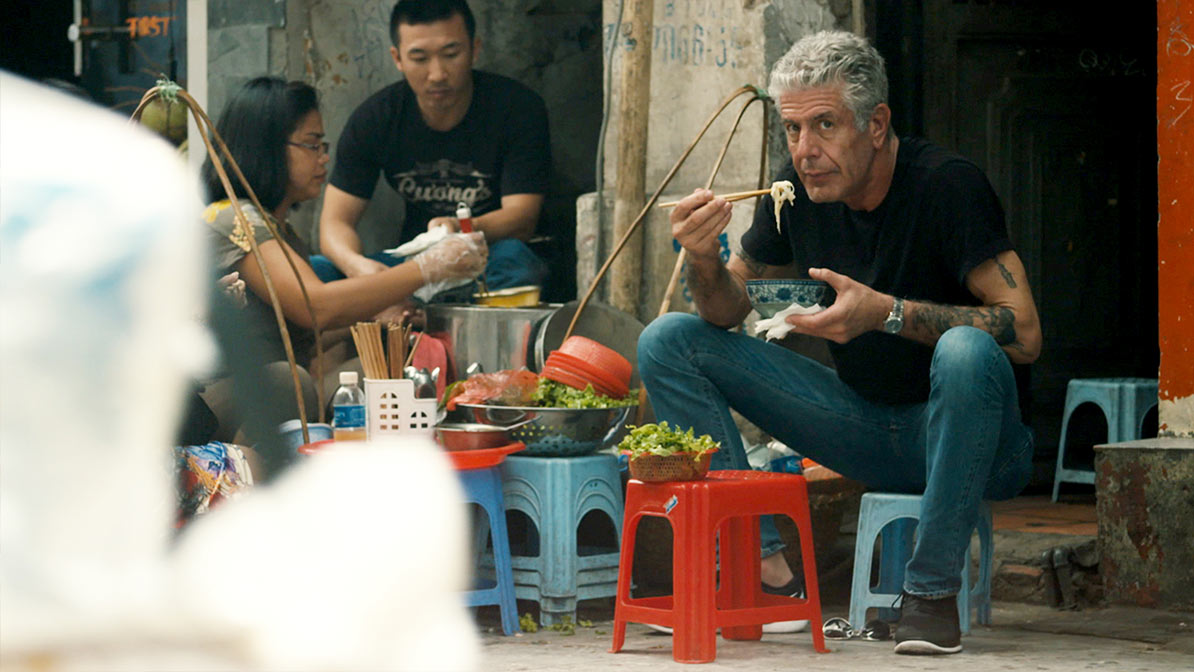After watching Roadrunner, a new documentary about chef and travel journalist Anthony Bourdain, I think about my two-month stay in Pakistan.
During 2016, I was in Pakistan for my graduate school research, and toward the end of the trip I was in Lahore to attend a water management conference.
On the bus to a Nestlé water treatment plant, I was talking with an engineer who asked me if during my time in Pakistan I was experiencing what is usually portrayed in mainstream news — which was mostly related to terrorism and the country’s role in the Afghanistan war.
No, I told him. I’d only met people who were generous with food and hospitality, who weren’t afraid to deal with the existential threats of water scarcity and climate change.
This memory comes to me after hearing Bourdain say in Roadrunner that “If you only look at what’s on the news, you can miss maybe what’s the bigger picture.”
Directed by Morgan Neville — whose previous work includes the Fred Rogers documentary, Won’t You Be My Neighbor? — Roadrunner is brutally honest about the cultural icon who became a modern-day Western explorer. Drawing on video footage from Bourdain’s earlier days on the cusp of becoming a bestselling author, clips from his series, and interviews with friends, the documentary paints a figure changed by his journey to fame, going from chef to host of an Emmy-winning series.
Roadrunner focuses primarily on Bourdain’s personal life, leaving out much about his political views and how travel transformed them. But the documentary does mention how his shift of views affected how he’d conduct the TV shows. While shooting an episode about Beirut in 2006, he was present for the start of the Israel-Lebanon war. The documentary has footage about it, allowing the viewer to see how Bourdain changes as he sees Israeli bombs and Lebanese refugees. But where the documentary takes a safe step is in ignoring his views on how U.S. foreign policy has forever damaged countries and people.
Throughout the documentary, Bourdain’s codependency is a common thread that seemingly invents him. While living paycheck to paycheck, Bourdain is on the cusp of fame with his memoir Kitchen Confidential. Yet he’s skeptical about it, saying he doesn’t trust anything outside of the kitchen, showing a sort of codependency on the chaos of a kitchen. And as his fame grows, the documentary depicts him growing dependent on spouses, traveling and Brazilian jiu-jitsu. He’s unable to settle down, and this chaos is captured from unused TV footage from a Democratic Republic of Congo trip. In the footage, Bourdain is mimicking shots from Apocalypse Now!, and it’s not hard to see how his nonstop globetrotting is affecting him as he becomes a Kurtz-like character from Heart of Darkness.
At times Roadrunner feels uncomfortable, but that’s the art of a great profile, and it’s what should be expected when portraying someone who was often brutally honest. This discomfort climaxes when the documentary winds down and his friends and family reflect on his final days and the crater he made after dying by suicide in 2018. Yet they know his fate wasn’t completely surprising — he had a track record of joking about committing suicide.
Roadrunner portrays a man who grew as a person while he traveled. As his friend David Chang says in the documentary, the more Bourdain traveled the less his shows were about food — it became Bourdain learning to be a better person. But, as the documentary’s name suggests, he never could stop running, which for him was traveling.
Though traveling is an incredibly privileged opportunity that few experience, Bourdain does leave behind a blueprint on how to grow as a person without leaving your hometown: people and their cultures are more complex than how they’re portrayed in the media.
Roadrunner: A Film About Anthony Bourdain is now showing at Broadway Metro.
